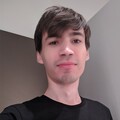EarFun is now offering new headphones with the Air Pro 4. These are advertised by the manufacturer as flagship earphones and actually offer a wide range of functions. The price is said to be relatively affordable at $90.
The new model belongs to the typical range of in-ear headphones. The battery life is stated at 11 hours for the headphones themselves and up to 52 hours with intermediate charges, whereby these figures apply without active noise canceling. The charging case can not only be charged via USB Type-C, but also wirelessly. The headphones feature a QCC3091 SoC from Qualcomm, which is designed to enable low-loss transmission of audio signals. AptX Lossless and LDAC are supported, although LE audio transmission will only be made available via a firmware update. Auracast compatibility is advertised - this also requires a firmware update.
A total of six microphones are available for adaptive noise suppression and making phone calls. Disturbing ambient noise can be reduced by up to 50 dB. The headphones also come with ANC that can be configured via an app.
There are 10-millimeter drivers and connection with two devices is possible. Google Fast Pair allows fast pairing with compatible Android devices. A gaming mode is supported, in which case the latency should be just 50 milliseconds. There is a wear detection function that stops playback when the earphones are removed from the ear. The EarFun Air Pro 4 are IPX5-certified and should be protected against damage caused by water or sweat.


























